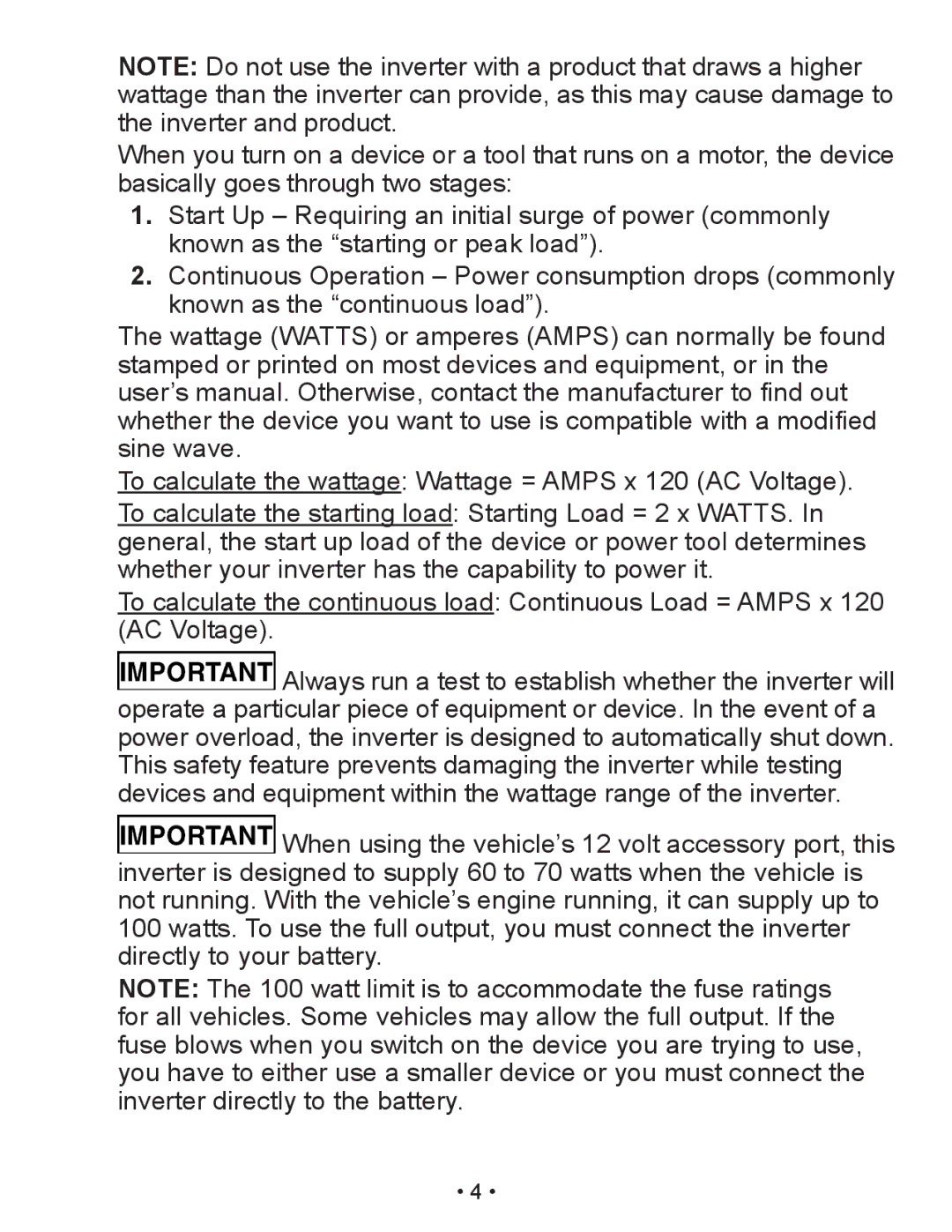NOTE: Do not use the inverter with a product that draws a higher wattage than the inverter can provide, as this may cause damage to the inverter and product.
When you turn on a device or a tool that runs on a motor, the device basically goes through two stages:
1.Start Up – Requiring an initial surge of power (commonly known as the “starting or peak load”).
2.Continuous Operation – Power consumption drops (commonly known as the “continuous load”).
The wattage (WATTS) or amperes (AMPS) can normally be found stamped or printed on most devices and equipment, or in the user’s manual. Otherwise, contact the manufacturer to find out whether the device you want to use is compatible with a modified sine wave.
To calculate the wattage: Wattage = AMPS x 120 (AC Voltage).
To calculate the starting load: Starting Load = 2 x WATTS. In general, the start up load of the device or power tool determines whether your inverter has the capability to power it.
To calculate the continuous load: Continuous Load = AMPS x 120 (AC Voltage).
![]() Always run a test to establish whether the inverter will operate a particular piece of equipment or device. In the event of a power overload, the inverter is designed to automatically shut down. This safety feature prevents damaging the inverter while testing devices and equipment within the wattage range of the inverter.
Always run a test to establish whether the inverter will operate a particular piece of equipment or device. In the event of a power overload, the inverter is designed to automatically shut down. This safety feature prevents damaging the inverter while testing devices and equipment within the wattage range of the inverter.
![]() When using the vehicle’s 12 volt accessory port, this inverter is designed to supply 60 to 70 watts when the vehicle is not running. With the vehicle’s engine running, it can supply up to 100 watts. To use the full output, you must connect the inverter directly to your battery.
When using the vehicle’s 12 volt accessory port, this inverter is designed to supply 60 to 70 watts when the vehicle is not running. With the vehicle’s engine running, it can supply up to 100 watts. To use the full output, you must connect the inverter directly to your battery.
NOTE: The 100 watt limit is to accommodate the fuse ratings for all vehicles. Some vehicles may allow the full output. If the fuse blows when you switch on the device you are trying to use, you have to either use a smaller device or you must connect the inverter directly to the battery.
• 4 •
